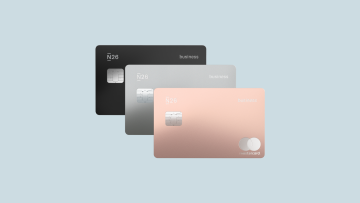1. Unpaid leave isn’t regulated by the French labor code
Taking unpaid leave is regarded as time taken out from work for your own personal development, and it’s recognized as such in the eyes of French law. It’s available to all employees, regardless of how long they’ve been working at a company or the type of employment contract they have. At the end of unpaid leave, employees go back to their original job, or are placed in a similar role.One aspect specific to unpaid leave is that it’s not covered by legislation. Still, the agreement you come to with your employer can include provisions that set limits on the duration of your leave. If this is the case, your employer must respect these terms. What’s more, your employer can’t impose unpaid leave on you—it’s always up to you to request it. Taking unpaid leave involves suspending your employment contract. This means that, unlike with forms of paid leave like maternity leave or vacation days, you won’t receive a salary. But before you dig into your savings, you can use your compte épargne-temps—or time deposit account—to make up for lost income, if you have one. If you’re on unpaid leave, you’ll still be covered by social security, but you won’t be contributing toward your pension.As unpaid leave has few or no terms attached, it’s worth getting a written agreement outlining the conditions of your leave, especially:- The conditions for your reinstatement in the company
- Whether or not you’ll be able to extend your leave
Note—civil servants can also take leave for personal reasons, but this is regulated by French law.N26 Free bank account
✓ 100% mobile ✓ No hidden fees ✓ No paperwork ✓ Free virtual Mastercard ✓ Investment tools
Get started2. Your employer can refuse your request for unpaid leave
Your employer isn’t obliged to grant you unpaid leave. This means that if you request unpaid leave, you’ll have to convince your boss that your request is well-founded. Here are some pointers to tip the odds in your favor:- Make your request well in advance. Depending on the length of your leave, you’ll need to put in your request sooner rather than later to give your employer time to make arrangements for your temporary departure. If you want to travel the world for a year, for example, you’re better off telling your employer several months or even a year in advance.
- Try to choose a time that works for the company. Going away during a quiet period could work in your favor when asking to take unpaid leave. Likewise, be flexible with dates if you can, and try to be accommodating to your employer.
- Point out the advantages for your employer. Depending on your reasons for requesting unpaid leave, try and see how it could benefit your company. For example, if you’re traveling, you might be learning new skills while you’re away. In the end, it’s up to you to figure out how to make your leave work to your company’s advantage.
3. There’s no minimum or maximum duration
Because unpaid leave is unregulated, it can last as long as you and your employer decide. Generally speaking, employees request unpaid leave once they’ve used up their annual paid leave.4. Your reason for taking unpaid leave can be personal or professional
Unpaid leave is for employees who want to take a break in their career to devote time to other personal or professional projects, such as:- Taking care of your children
- Working for another employer
However, be careful—if you want to go work for another company, check your contract to see if it has a non-competition or exclusivity clause. If so, you’ll have to comply with this or you could experience repercussions—or worse, lose your job.5. Unpaid leave is less restrictive than a sabbatical
Wondering about the differences between unpaid leave and a sabbatical? These two types of leave—both of which are often taken over a long period—can be easily confused. Both lead to the temporary suspension of your contract and salary, and can be taken for whatever reason. Likewise, your employer can refuse either. However, there’s one big difference that sets them apart: sabbaticals are regulated by the French labor code. They last from six to 11 months and are only available to employees with at least six years of work under their belt and 36 months with the company. Finally, within the past six years, the employee in question must not have benefited from a career transition plan, taken leave for setting up or taking over a business, or taken another sabbatical. Plus, the request to take this type of leave must be made at least three months in advance.Find out everything you need to know about sabbaticals in our article!In short, sabbaticals could work for you if you’re planning to take a break of six to 11 months and you meet the required conditions. Finally, before you ask for unpaid leave, don’t forget to find out about the different types of leave covered by French legislation, such as regular leave, going part-time to set up or take over a business, and parental leave. Find all the different types of leave in France here.Exclusive offers
Save on your favorite brands all year round just by spending with your N26 Mastercard
Mastercard Travel RewardsMake your dreams a reality with N26
Whether you want to save for a trip around the world or take a year off to care for your child, N26 helps you manage your budget like a pro. Our mobile app sends you instant notifications for every transaction, and our Statistics feature helps you track your spending, so you can spot opportunities for savings. Finally, with our premium accounts, it’s never been easier for you to save money with Spaces sub-accounts—our virtual piggy banks that allow you to set money aside without having to open a new account. Find the bank account that’s right for you today.





